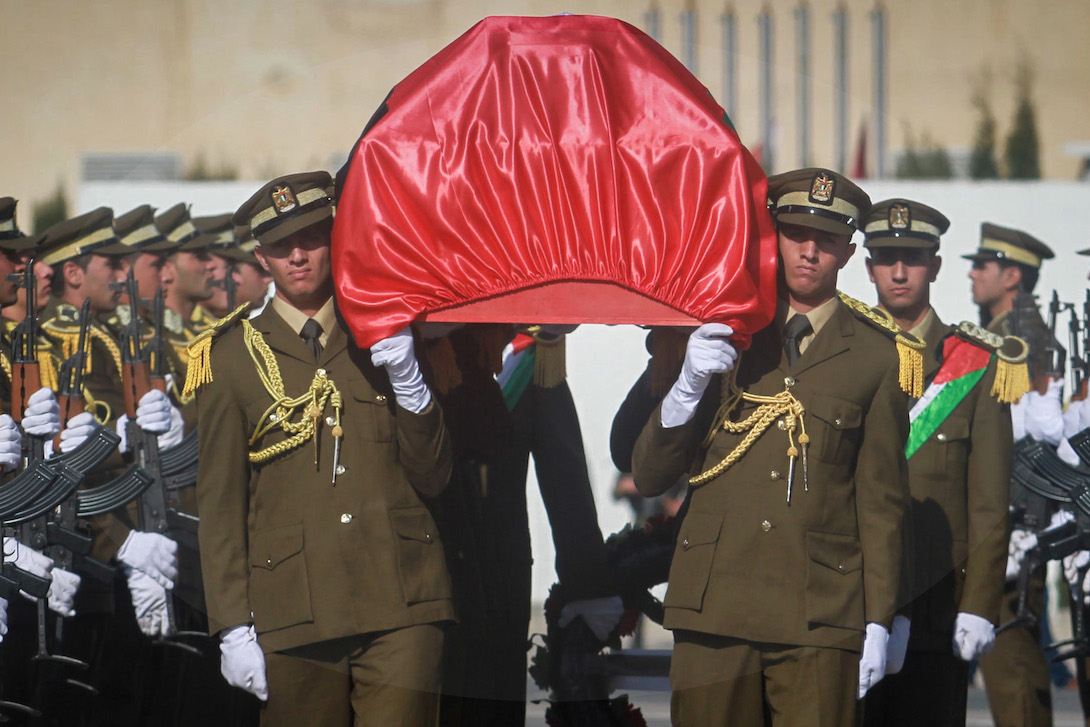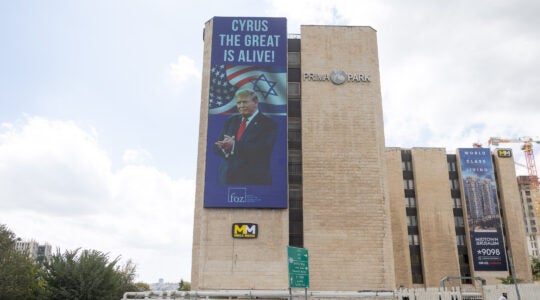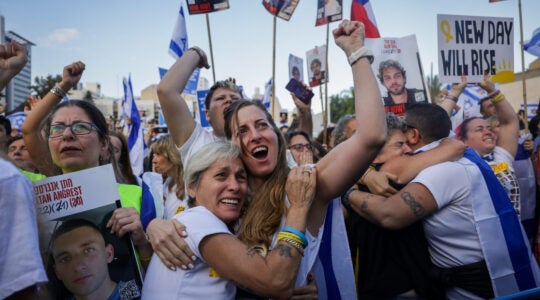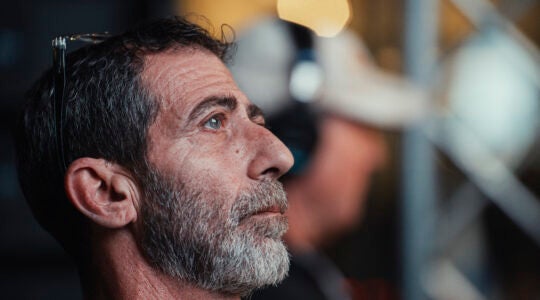JERUSALEM (JTA) — Following an autopsy, Palestinian and Israeli doctors issued differing reports on the cause of death of a Palestinian official following an altercation with Israeli security forces at a demonstration.
The autopsy on Ziad Abu Ein was carried out early Thursday at the forensics institute in Abu Dis in eastern Jerusalem. Israeli, Palestinian and Jordanian doctors participated in the procedure.
A preliminary report issued by Israel’s Health Ministry said Abu Ein, 55, died of a heart attack from a preexisting heart condition brought on by stress. The preliminary findings will require verification after the results of the investigation and lab results are received, the ministry said.
Palestinian officials said the death was caused by the actions of Israeli troops, including being hit and inhaling large amounts of tear gas.
“After hearing the results of the postmortem, the Palestinian government holds Israel fully responsible for the killing of Ziad Abu Ein,” government spokesman Ihab Bseiso told reporters in Ramallah on Thursday.
Abu Ein died in the village of Turmusiya, near Ramallah, amid a protest by dozens of local residents and activists over the Jewish settlement outpost Adei Ad. The protesters planted olive trees on land that they believe is in danger of being confiscated by Israel.
Palestinian officials said Abu Ein was beaten by Israeli soldiers, while a video of the incident circulating on social media shows Abu Ein striking an Israeli officer, who then grabs him on the side of his neck and pushes him away.
Abu Ein lost consciousness and his heart stopped beating on his way to Ramallah Public Hospital, Maan reported. His family said he had diabetes and high blood pressure.
Thousands of Palestinians attended the state funeral for Abu Ein on Thursday in Ramallah. Mourners chanted “Revenge!” and “Your blood will not be spilled in vain!” while carrying the Palestinian-flag draped coffin during the funeral procession, the Palestinian Maan news agency reported.
Abu Ein, a member of the Fatah party’s Revolutionary Council, previously served as undersecretary to the minister of prisoner affairs. He was head of the committee against Israel’s security fence and settlements at the time of his death.
He was extradited to Israel from the United States in 1981 to face charges that he was involved in a 1979 bombing that killed two Israeli teens, the Times of Israel reported. After being sentenced in 1982 to life in prison, Abu Ein was released during a 1985 prisoner swap, according to the news website.
JTA has documented Jewish history in real-time for over a century. Keep our journalism strong by joining us in supporting independent, award-winning reporting.






